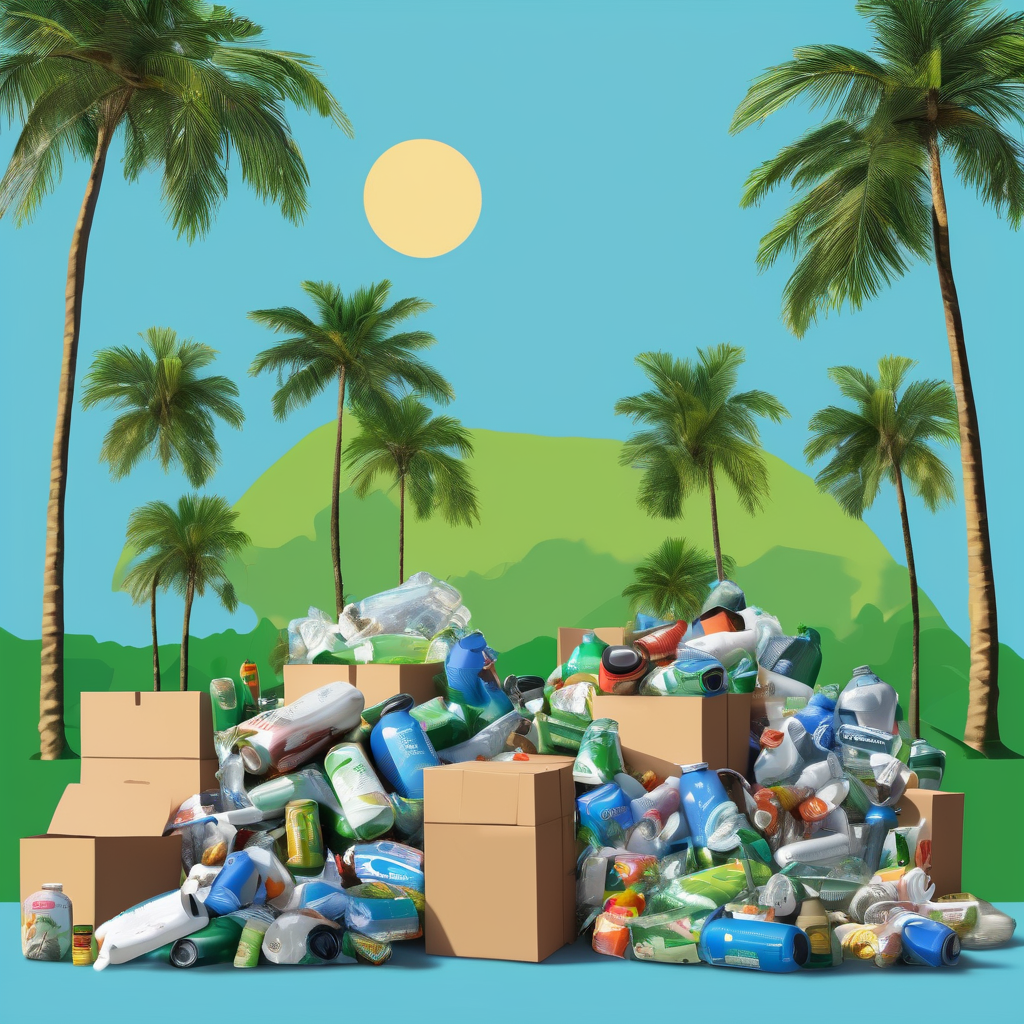Fiji is grappling with a significant increase in solid waste, with production levels reaching an alarming 200,000 tonnes in 2024, the highest recorded in the past five years. Despite this surge, recycling efforts remain disappointingly low, with less than one percent of waste being recycled, as per the latest figures from the Fiji Bureau of Statistics (FBS). These statistics were presented in the Experimental Environmental Account for Solid Waste 2024, highlighting a pressing waste management crisis.
The data reveals that a predominant portion of the waste, approximately 72.4%, ends up in landfills, while 27.4% is incinerated. Only a minute fraction, about 0.2% or 477 tonnes, is recycled, underscoring the urgent need for improved waste management strategies in Fiji. Compared to 2023, waste production has jumped by 8,875 tonnes, primarily due to household and commercial activities, which constitute 83.8% of total waste output.
The uptick in waste generation is largely attributed to increased general and special waste, indicating that population growth and economic expansion are driving consumption and disposal beyond sustainable levels. Economically, the manufacturing sector is the leading waste contributor with 25,696 tonnes, followed closely by the transport, storage, wholesale, and retail sectors. Nevertheless, households remain the largest waste producers, generating nearly 40% of the total.
Although various government and community initiatives promote waste segregation, Fiji’s recycling rate has stagnated at 0.2% over the past five years. The challenges are mainly due to limited recycling infrastructure, uneven collection systems beyond major towns, and lack of incentives for effective waste management. Major sites like the Naboro landfill near Suva and the Vunato disposal site in Lautoka handle most of the waste, while incineration of hazardous materials continues to raise environmental concerns.
Recognizing the gravity of the situation, the government is pushing for enhanced recycling facilities, increased composting of organic waste, and stricter regulatory measures on single-use plastics. Initiatives like the proposed container deposit scheme aim to offer financial incentives to boost recycling efforts. Civil society groups emphasize the need for education and a shift in mindset to advance waste management practices.
The initiative by the FBOS to systematically track waste generation and disposal marks a crucial first step in addressing Fiji’s waste management issues. While the current circumstances pose significant challenges, there is substantial potential for improvement through coordinated efforts and strategic policy deployment. Fiji stands at a pivotal moment, with the opportunity to transform its waste management crisis into a benchmark for sustainable environmental practices.
